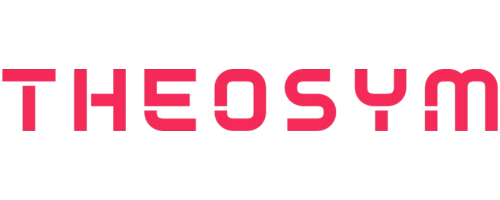Recruitment should feel exciting – you’re building your dream team, after all. But the process can often feel more like a maze than a strategic win. Resumes pile up, unqualified candidates slip through, and top talent disappears before you’ve even sent the offer.
And that’s where the frustration sets in. Manual hiring eats up time, burns through budgets, and still leaves you guessing if you’ve made the right choice. The good news is, artificial intelligence (AI) is stepping in to clean up this hiring chaos.
Treat AI as your recruitment assistant who automates time-consuming tasks, analyzes mountains of data, and helps you find the right talent faster. Read on as we explore how AI-powered tools are helping streamline recruitment into a stress-free experience for both hiring managers and applicants.
How does AI help in recruitment?
Recruitment has a lot of moving parts, but AI takes the complexity out of these responsibilities by automating and organizing every step of the process. Let’s dive deeper.
AI accelerates resume screening
Manually reviewing resumes can take hours or even days. Especially when hiring for roles that attract a high volume of applicants. AI-powered tools sift through resumes in seconds by searching for keywords, qualifications, and relevant experience. These tools ensure you don’t overlook candidates who might otherwise be buried in the pile.
With advanced filtering capabilities, you can quickly zero in on the most promising candidates while maintaining fairness and objectivity.
Automated interview scheduling eliminates logistical headaches
Scheduling interviews can become a nightmare, particularly when you’re coordinating multiple stakeholders and candidates across time zones. AI-enabled scheduling tools seamlessly integrate with calendars, offer available slots to candidates, and sync with your team’s schedules.
This automation saves time and ensures candidates experience a smooth, professional process. It’ll leave a positive impression from the very beginning. Plus, your team can focus on evaluating top candidates instead of wasting hours on back-and-forth emails.
AI chatbots keep candidates engaged
Communication is key in recruitment, but keeping up with candidate inquiries can also be draining. AI chatbots can provide real-time responses to frequently asked questions, from application updates to role-specific queries.
Even if they’re potentially considering multiple other opportunities, this accessibility keeps candidates engaged and more likely to stay in the pipeline.
AI enhances decision-making for better hiring outcomes
One of AI’s greatest strengths is its ability to provide data-driven insights that aid in decision-making. Beyond simplifying tasks, AI tools examine candidate data to help recruiters make informed choices.
For example, AI can rank candidates based on predicted performance or retention potential. It helps you select individuals who are both skilled and a cultural fit.
Also read: How to Make the Most of AI in Omnichannel Marketing
AI in recruiting: How it improves decision-making with data-driven insights
When hiring, your goal should be to find candidates who will thrive in your company long-term. Here’s how AI sharpens recruitment strategies:
Skill and culture matching
Finding the perfect candidate is more than just ticking boxes on a job description. AI goes deeper. It scrutinizes not just technical qualifications but also patterns in a candidate’s experience, soft skills, and even communication style.
Let’s say you’re hiring for a collaborative role. An AI tool might recommend candidates with past experience in team-heavy environments. Or those who’ve demonstrated leadership in cross-functional projects. It doesn’t just look at keywords but interprets the data to find individuals who genuinely fit both the role and your company culture.
Seeing beyond the resume
One of AI’s most powerful capabilities is predictive analytics. By examining patterns in a candidate’s past performance, namely job tenure, progression, and the industries they’ve worked in, AI can forecast their potential fit and longevity within your company.
Think of it like this: If you’re hiring for a high-stress sales position, AI might look at past data to highlight candidates who’ve succeeded in similar roles. It could even detect subtle indicators, like a history of consistent performance under pressure, to suggest whether they’re likely to excel and stick around.
Reducing unconscious bias
Unconscious bias can creep into even the most well-meaning hiring processes. Factors like a candidate’s name, appearance, or even their university can inadvertently influence decisions. AI helps by focusing on objective criteria.
When properly designed, AI tools can assess candidates solely based on qualifications and experience.
- They can filter out subjective factors that don’t impact job performance.
- Your hiring decisions are driven by data, not unconscious biases for a more diverse and inclusive workforce.
Example: Instead of ranking candidates based on traditional metrics like school prestige, AI might prioritize measurable skills or relevant certifications.
Enhancing the candidate experience with AI

Recruitment is also about creating a seamless and engaging experience for candidates. AI tools make this possible by focusing on speed, personalization, and accessibility.
Picture this: A candidate applies for a role at your company. Within minutes, they receive a confirmation email tailored to their application. Shortly after, they’re invited to schedule an interview through an intuitive AI-powered platform.
No delays, no frustration. Only smooth communication.
Here are some standout ways AI enhances the candidate experience:
- Faster response times: Candidates appreciate timely updates, and AI makes certain they’re never left waiting for weeks.
- Personalized recommendations: AI tools suggest roles that align with a candidate’s skills, even if their first choice isn’t a fit.
- Accessible interviews: Virtual AI-driven platforms make scheduling and conducting interviews a breeze.
What’s the result? Candidates walk away feeling valued, respected, and impressed with your process. And when candidates feel good, they’re more likely to choose your company over others – even if the offers are similar.
With AI, recruitment becomes a two-way street where both you and the candidate come out winning.
3 key benefits for businesses using AI in recruitment
AI is helping businesses looking to improve their hiring outcomes. Here’s what adopting AI in recruitment can bring to the table:
1. Efficiency that saves time and resources
Sorting through hundreds of resumes and coordinating interviews can drain your team. AI handles these recurring tasks. It gives your HR professionals the bandwidth to prioritize strategic initiatives like employer branding or improving workplace culture.
2. Cost savings through smarter hiring
High turnover costs businesses both time and money. AI’s data-driven insights identify candidates who are not just qualified but also likely to stay. It therefore reduces the need to repeatedly hire for the same role.
3. Scalability minus the added stress
Whether you’re hiring for one position or an entire department, AI can handle large volumes of applicants with ease. The best part is it maintains consistency in evaluation and makes sure no details slip through the cracks.
Choosing the right AI recruitment tools for your business
The right tool for your business depends on your goals, budget, and current hiring challenges. Here’s how to make an informed choice:
Start with your pain points
Identify the most time-consuming or problematic parts of your hiring process. Is it screening resumes? Scheduling interviews? Improving candidate engagement? Pinpointing your needs will help you narrow down tools that solve specific problems.
Key features to look for
When evaluating tools, focus on features that reflect your business size and hiring volume:
- Data accuracy: Tools with reliable algorithms that can handle nuanced candidate evaluation.
- Integration capabilities: Make sure the tool works seamlessly with your existing HR software.
- Ease of use: Choose platforms with intuitive dashboards that don’t require extensive training.
Start small and scale
It’s tempting to dive in with a fully automated system, but starting small can help you assess ROI without overwhelming your team. Consider starting with a resume screening or interview scheduling tool and expanding as you see results.
PRO TIP: Look for tools that don’t just handle tasks but also provide insights you can act on. The right AI tool will empower your team and keep the human touch at the core of recruitment.
AI-empowered human virtual assistants

At Theosym, we take virtual assistance to the next level by combining the expertise of highly trained professionals with cutting-edge AI tools developed in-house. Our human virtual assistants are equipped with advanced resources that streamline tasks and boost their productivity.
Whether you need help managing workflows, organizing data, or tackling specialized projects, our virtual assistants, who leverage AI to support their skills, are ready to deliver. They provide reliable, efficient assistance that you can depend on – giving your business the support it needs to succeed.
Final Thoughts
AI can do wonders for your hiring process. It saves tremendous amounts of time, reduces costs, and makes smarter decisions. But let’s be clear: successful recruitment still needs the human touch.
To strike the right balance, use AI to streamline repetitive tasks and surface valuable insights. But rely on your HR team to add context, build relationships, and make the final call.
The companies that get it right are the ones that combine the best of both worlds: AI for efficiency and humans for connection. When you find that balance, recruitment transforms from a headache into a strategic advantage.



